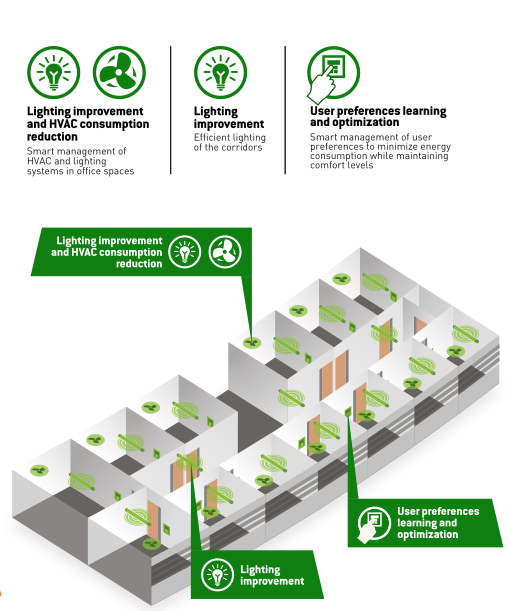
Navigating Efficiency: The Impact of Smart Office Energy Management
Smart Office Energy Management is transforming the way businesses approach energy consumption, sustainability, and operational efficiency. In the era of smart technologies, optimizing energy usage in the workplace has become a crucial aspect of responsible corporate practices.
The Need for Smart Energy Solutions in Offices
Traditional office spaces often face challenges related to energy wastage, inefficient HVAC systems, and lack of real-time monitoring. Smart Office Energy Management addresses these issues by implementing intelligent solutions that enhance energy efficiency, reduce costs, and contribute to a greener environment.
IoT Sensors for Real-Time Monitoring
One of the cornerstones of Smart Office Energy Management is the deployment of Internet of Things (IoT) sensors. These sensors continuously monitor energy usage, temperature, lighting, and occupancy levels in real-time. This data is then analyzed to identify patterns, inefficiencies, and opportunities for improvement, providing valuable insights for energy optimization.
Automated HVAC Systems for Climate Control
Smart energy management extends to the climate control systems within offices. Automated Heating, Ventilation, and Air Conditioning (HVAC) systems adjust temperature settings based on occupancy and external environmental conditions. This not only ensures a comfortable working environment but also minimizes unnecessary energy consumption when areas are unoccupied.
Intelligent Lighting Solutions
The implementation of smart lighting solutions contributes significantly to energy efficiency. Motion sensors, daylight harvesting, and automated controls adjust lighting levels based on natural light availability and occupancy. These features not only reduce electricity consumption but also create a well-lit and conducive workspace.
Energy-Efficient Appliances and Equipment
Smart Office Energy Management involves the use of energy-efficient appliances and equipment. From computers and printers to kitchen appliances, businesses can invest in smart devices that consume less energy during operation. This shift towards energy-efficient technology not only reduces electricity bills but also aligns with sustainability goals.
Predictive Analytics for Energy Optimization
Predictive analytics plays a key role in Smart Office Energy Management. By analyzing historical data and patterns, predictive algorithms can anticipate energy usage trends. This foresight allows businesses to proactively adjust energy settings, implement energy-saving measures, and optimize consumption, resulting in cost savings and reduced environmental impact.
Employee Engagement and Awareness
Creating a culture of energy consciousness among employees is crucial for the success of smart energy initiatives. Smart Office Energy Management often includes awareness programs, encouraging employees to adopt energy-efficient practices, such as turning off lights and equipment when not in use. Employee engagement is a vital component in achieving sustained energy efficiency.
Cost Savings and Return on Investment
While the primary goal of Smart Office Energy Management is sustainability, it also offers substantial cost savings. Businesses can experience a significant reduction in energy bills, leading to a positive return on investment. The initial investment in smart technologies is often outweighed by the long-term financial benefits and positive environmental impact.
Integration with Renewable Energy Sources
Smart energy management extends beyond the office walls to consider the broader energy ecosystem. Businesses can integrate their smart systems with renewable energy sources, such as solar panels or wind turbines. This synergy allows offices to harness clean energy, further reducing their carbon footprint and dependence on traditional power sources.
Contributing to Corporate Social Responsibility
Adopting Smart Office Energy Management aligns with corporate social responsibility (CSR) initiatives. Businesses that prioritize energy efficiency demonstrate their commitment to sustainability, environmental conservation, and responsible business practices. This commitment enhances the corporate image, attracting environmentally conscious clients, partners, and employees.
The Future of Smart Office Energy Management
In conclusion, Smart Office Energy Management is a transformative approach to energy consumption in the workplace. As smart technologies continue to advance, businesses have the opportunity to create more sustainable, efficient, and eco-friendly office spaces. To explore more about Smart Office Energy Management, visit NinthWorldHub.com.
